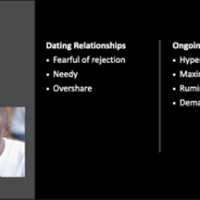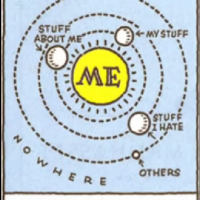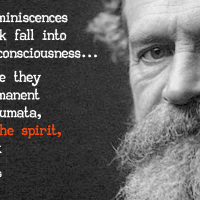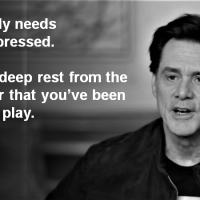A piece from Toronto Star today about Earla Dunbar and Paul Rennie, their own fights to find recovery and a better life, the work they do together, their friendship and their home.
“When you’ve had to fight for your life to finally get to a better place, you don’t think about things like home ownership being a symbol of success. Survival is the symbol of success.”
Lifelong Renter
When survival is a symbol of success
December 6, 2012David Hayes
SPECIAL TO THE STAR
“People sometimes wonder, what does a social phobic look like?” says Earla Dunbar, sitting in the living room of the comfortable 800-square-foot apartment she shares with a friend. Answering her own question, she says, “They look like you or me. They’re like actors; you can’t see the terror that’s inside but they go out into social situations as little as possible.”
The petite 58-year-old Dunbar is wearing black pants and a white jersey, her hair an attractive pageboy cut with highlights. Her surroundings bear her touch: a lush collection of plants by the window (burgundy clover, a Boston fern, cacti); a terrarium containing a bird’s nest and acorns; framed on one wall, her mother’s needlepoint of a horse-drawn carriage in winter; a Persian carpet from her great aunt.
Although she seems outgoing and socially comfortable, she will unashamedly list the afflictions she has lived with for decades: sociophobia, agoraphobia, depression, panic disorder. Looking back, she realizes she developed a social phobia as a child, exacerbated by the death of her father, her mother becoming suicidal and an incident of sexual abuse. For years she struggled to hold her life together, through jobs and two marriages.
Today, Dunbar’s story is a triumphant one. Suicidal at 44, she sought help at the Centre for Addiction and Mental Health (CAMH) and in 2001 founded the Social Phobia Support Group of Toronto, among the largest of its kind in North America. In 2008, she received CAMH’s Courage to Come Back Award, which recognizes individuals who overcome mental health or addiction issues and give back to others similarly affected. From 2002 to 2009, she served as the consumer advisory committee chairwoman for the Anxiety Disorders Association of Canada (ADAC). In 2010, ADAC created The Earla Dunbar Consumer Award, which annually recognizes someone who, like Dunbar herself, has overcome an anxiety disorder and contributes to public awareness.
Now, local filmmaker Katie Cooper is completing a feature-length documentary called In the Spotlight (katiecooper.ca/spotlight), which follows five people, including Dunbar, who have struggled to overcome excessive fear and panic over being in social situations.
The number one mental health issue in Canada, anxiety disorder is an umbrella term covering several ailments. (Aside from social phobia, agoraphobia and panic disorder, these include post-traumatic stress disorder and obsessive-compulsive disorder.) One in four will suffer from it at some point in their lives and, worse, an estimated 80 per cent of suffers will go untreated because there is a severe shortage of services available and because the stigma is so great that many don’t seek help.
Thinking of her own experience, Dunbar says: “You look at others and think they have no problems. But you’re looking at the outside, not the inside.”
“Yes,” adds Dunbar’s best friend and roommate, Paul Rennie, who has joined us. “You avoid people for one month, two months, three months and finally it becomes a monster.”
Rennie, an articulate 46-year-old wearing jeans and a Buffalo Bills sweatshirt, sports a shaved head and a number of tattoos. Adopted at two-and-a-half, the family gave their “problem child” back to the Children’s Aid Society when he was 13. He ran away from foster homes, lived on the streets, acquired alcohol and drug addictions. He tried Alcoholics Anonymous and Narcotics Anonymous, began suffering anxiety attacks, felt suicidal, couldn’t hold down a job.
One day he typed “social phobia” into a computer and a reference to The Clark Institute popped up (now absorbed into CAMH). While there he met Earla, heard her story and knew he’d come to the right place. Today he works part-time with A-Way Express, a courier firm that provides flexible employment for people with mental health issues, and he runs Dunbar’s support group.
“I call it a morbid shyness,” he says. “At the meetings, I say, ‘we’re not doctors, we’re just like you. If you don’t want to talk, that’s fine. If you want to leave, that’s OK. There’s no pressure here.’ ”
Given their medical circumstances, both Dunbar and Rennie receive financial support through the Ontario Disability Support Program but money is always tight. So eight months ago, they moved into their current $1,495-a-month two-bedroom on the third floor of a highrise in the High Park area.
“I rent because I can’t afford a home,” says Dunbar.
She owned two houses and a condo with her ex-husbands but, as she explains, “I know many people with mental health problems who have fought their way to successful and fulfilling lives. Still, most of them don’t own homes.
“When you’ve had to fight for your life to finally get to a better place, you don’t think about things like home ownership being a symbol of success. Survival is the symbol of success.”
David Hayes is an author and award-winning feature writer who has been a renter most of his life. If you have stories or information to share about renting, he can be reached at lifelong_renter@sympatico.ca.
- original at http://www.yourhome.ca/homes/newsfeatures/article/1298768–when-survival-is-a-symbol-of-success
related


































































































thank you so much Kevin th
LikeLike
Hey Th , you’re very welcome. nice article.k
LikeLike